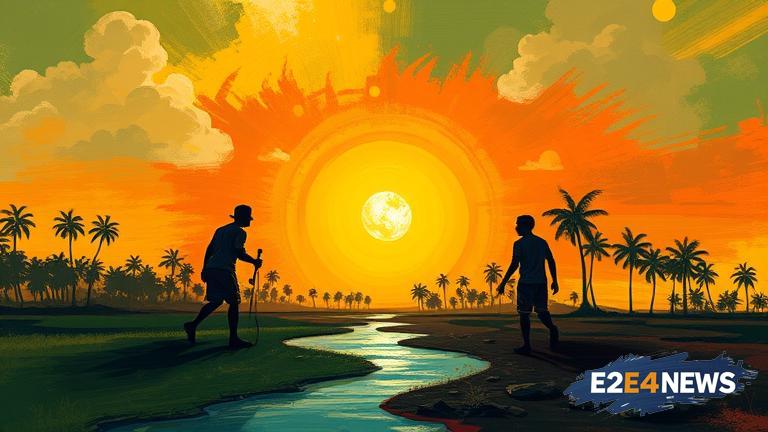Guyana, a country located on the northern coast of South America, has a complex and often contentious political landscape. The nation’s politics have been characterized by polarization, with different groups and parties holding deeply entrenched views and interests. This polarization has been a longstanding feature of Guyanese politics, with citizens becoming increasingly accustomed to the divisions that shape the country’s governance and society. The roots of this polarization can be traced back to the country’s history, with different ethnic and cultural groups having distinct experiences and perspectives. The legacy of colonialism and the struggle for independence have also played a significant role in shaping the country’s political dynamics. In recent years, the discovery of oil and the subsequent economic boom have further exacerbated the divisions, with different groups vying for control and influence. The political parties in Guyana, including the People’s Progressive Party (PPP) and the People’s National Congress (PNC), have historically been aligned with specific ethnic groups, which has contributed to the polarization. The PPP has traditionally been associated with the Indo-Guyanese community, while the PNC has been linked to the Afro-Guyanese community. This ethnic polarization has been a major factor in the country’s political divisions, with each group having its own distinct interests and concerns. Despite efforts to promote unity and inclusivity, the polarization persists, with many citizens identifying strongly with their respective ethnic groups. The media has also played a significant role in shaping public opinion and perpetuating the polarization, with different outlets often reflecting the views and interests of specific groups. Social media has further amplified the divisions, with citizens using online platforms to express their views and engage in often heated debates. The polarization has also had a significant impact on the country’s governance, with different groups and parties often struggling to find common ground and work towards the common good. The lack of trust and cooperation between different groups has hindered the country’s development and progress, with many citizens feeling disillusioned and disconnected from the political process. Despite these challenges, there are efforts underway to promote unity and reconciliation, with civil society groups and community organizations working to bridge the divides and foster greater understanding and cooperation. The government has also launched initiatives aimed at promoting inclusivity and addressing the root causes of the polarization. However, these efforts are often hindered by the deep-seated divisions and mistrust that exist between different groups. The international community has also taken notice of Guyana’s polarized politics, with organizations such as the United Nations and the Caribbean Community (CARICOM) offering support and guidance to help the country address its challenges. In conclusion, the polarization of Guyana’s politics is a complex and deeply entrenched issue, with roots in the country’s history, culture, and society. While there are efforts underway to promote unity and reconciliation, the divisions persist, and it will likely take time, effort, and commitment from all stakeholders to address the underlying causes and build a more inclusive and cohesive society. The country’s future development and progress depend on its ability to overcome the polarization and work towards the common good. By understanding the complexities of Guyana’s politics and the factors that contribute to the polarization, citizens and stakeholders can begin to build bridges and foster greater cooperation and understanding. Ultimately, it is only through a collective effort that Guyana can overcome its divisions and build a brighter, more inclusive future for all its citizens.
